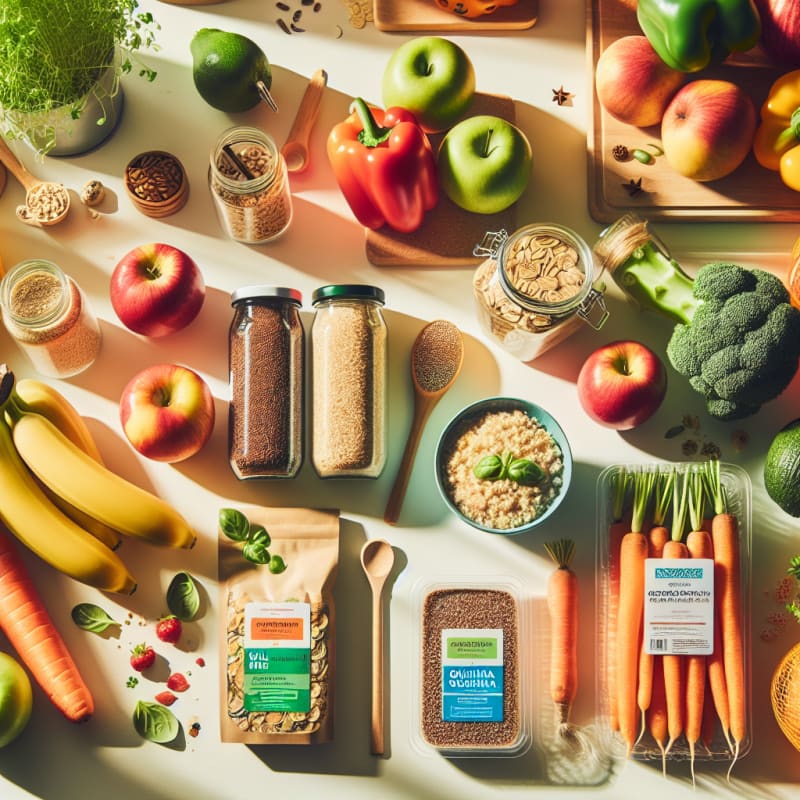Food Choices That Can Increase Type 2 Diabetes Risk: What You Need to Know
As more people become aware of the impact of food ingredients on health, understanding which foods raise the risk of type 2 diabetes is crucial. With evolving food regulations, frequent product recalls, and new dietary trends, making informed choices is more important than ever—especially for those with food sensitivities or specific dietary preferences. This article, inspired by recent coverage in The County Press, breaks down the foods most associated with diabetes risk, highlights the latest industry news, and offers actionable tips for healthier living.
Understanding Type 2 Diabetes and Its Dietary Triggers
Type 2 diabetes is a chronic condition characterized by insulin resistance and high blood sugar levels. According to the Centers for Disease Control and Prevention (CDC), over 37 million Americans have diabetes, with type 2 accounting for 90–95% of cases. The foods we eat play a significant role in determining risk.
Key Foods That Increase Type 2 Diabetes Risk
| Food Category | Why It Increases Risk | Scientific Source |
|---|---|---|
| Sugar-Sweetened Beverages | High in added sugars, rapidly spike blood glucose and insulin demand | PubMed |
| Refined Grains | Low in fiber, cause quick blood sugar increases | NIH |
| Processed Meats | Contain nitrites, sodium, and preservatives linked to diabetes | NIH |
| Trans Fats | Raise LDL cholesterol, promote inflammation and insulin resistance | FDA |
| High-Fat Dairy | Some studies link saturated fats to impaired insulin sensitivity | NIH |
| Ultra-Processed Foods | Often high in sugar, salt, and unhealthy fats; low in nutrients | NIH |
Current Food Safety Alerts & Regulatory Updates
- Product Recalls: The FDA and EFSA regularly issue recalls for foods contaminated with pathogens or undeclared allergens. For example, a recent ice cream recall due to Listeria highlights the importance of staying informed—especially for those with compromised immune systems or sensitivities.
- Labeling Laws: New regulations in the U.S. and Europe require clearer labeling of added sugars and allergens (FDA Nutrition Facts updates), helping consumers make safer choices.
- Emerging Trends: Plant-based and keto diets are on the rise, but not all products are healthy—some are ultra-processed and high in sodium or additives. The New York Times recently reported on the debate over the healthfulness of plant-based meat alternatives.
- Brand Updates: Major brands are reformulating products to reduce sugar and eliminate trans fats, responding to consumer demand and new bans (see FDA trans fat ban).
How These Developments Impact You
People with food sensitivities, diabetes risk, or ethical food concerns must pay close attention to changing ingredients and regulations. For instance, hidden sugars or allergens in reformulated products can pose risks. Meanwhile, new labeling laws empower consumers to make better-informed choices, but only if they know what to look for.
Tips for Reducing Type 2 Diabetes Risk
- Choose whole grains over refined grains
- Limit sugar-sweetened beverages and opt for water or unsweetened drinks
- Eat more fiber-rich foods like fruits, vegetables, and legumes
- Check labels for added sugars, trans fats, and sodium
- Stay updated on recalls and ingredient changes
How Food Scan Genius Simplifies Smart Food Choices
Staying informed about ingredients, recalls, and new regulations can be overwhelming. The Food Scan Genius app helps by scanning product barcodes and instantly revealing hidden sugars, allergens, and risky additives. It’s especially useful for people with diabetes risk, food sensitivities, or specific dietary preferences.
User Testimonial: “I use Food Scan Genius every time I shop. It alerts me to hidden sugars and ingredients I need to avoid for my prediabetes. It’s a game-changer!” — Maria, Food Scan Genius user
Frequently Asked Questions
What foods should I avoid to lower my risk of type 2 diabetes?
Avoid sugar-sweetened beverages, refined grains, processed meats, trans fats, and ultra-processed foods. Focus on whole, minimally processed foods.
How can I stay updated on food recalls and ingredient changes?
Follow FDA and EFSA alerts, and use apps like Food Scan Genius to get instant notifications and ingredient breakdowns.
Are plant-based or keto foods always healthier?
Not necessarily. Some plant-based and keto foods are highly processed and may contain unhealthy additives or excess sodium.
How do new labeling laws help consumers?
They require clearer disclosure of added sugars, allergens, and other key ingredients, making it easier to make informed choices.
Conclusion: Empowering Smarter Food Choices
Understanding which foods increase type 2 diabetes risk—and staying informed about food safety alerts, new regulations, and ingredient changes—empowers you to make choices that support long-term health. Apps like Food Scan Genius simplify this journey, helping you scan, decode, and select foods that align with your health goals and dietary needs. By making informed decisions today, you can protect your health tomorrow.
References
- CDC: Type 2 Diabetes Basics
- PubMed: Sugar-sweetened beverages and diabetes risk
- NIH: Refined grains and diabetes
- NIH: Processed meats and diabetes
- FDA: Trans Fat Ban
- NIH: Dairy fat and diabetes
- NIH: Ultra-processed foods and health
- FDA: Recalls & Safety Alerts
- EFSA: Food Safety Crisis Preparedness
- NY Times: Are Plant-Based Meats Healthy?





